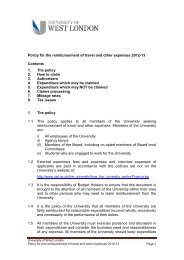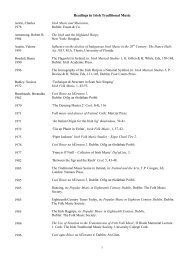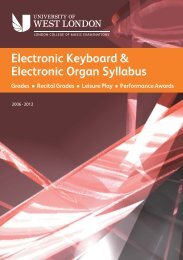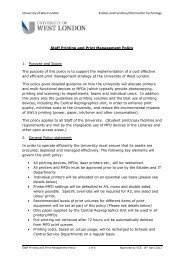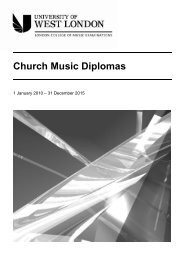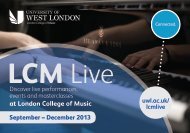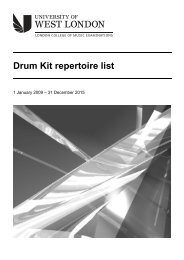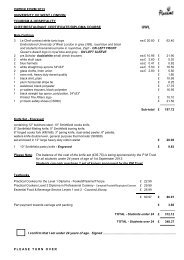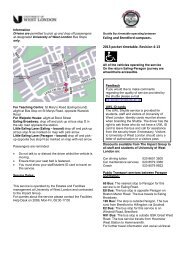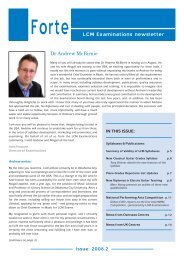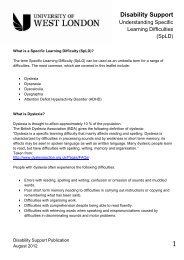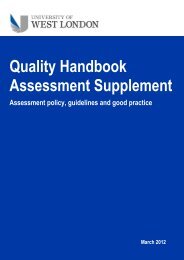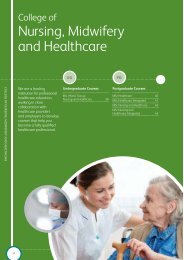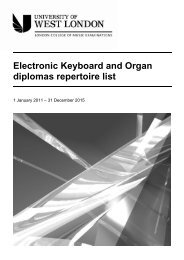LCM Exams - Early Learning Syllabus - University of West London
LCM Exams - Early Learning Syllabus - University of West London
LCM Exams - Early Learning Syllabus - University of West London
- No tags were found...
You also want an ePaper? Increase the reach of your titles
YUMPU automatically turns print PDFs into web optimized ePapers that Google loves.
2.5 <strong>Early</strong> <strong>Learning</strong> GroupTeachers may prefer to enter children as a group. A group <strong>of</strong> between 5 and 9 in number is considered suitable.Each child should wear a large name badge. On successful completion <strong>of</strong> the examination a single report will beissued. Each child taking part in the group will receive a certificate. Teachers are expected to take an active part inthe children’s work during the examination and are invited to work ‘in role’ in all three sections.The examiner will look for:• involvement by the children• response to other members <strong>of</strong> the group• control, but not inhibition, by the teacher• ability to complete the examination• ability and willingness to talk to the examiner about the examination work, and subjects that arise from it• coherence in the progress <strong>of</strong> the examination workThere are two stages:Stage One1. The candidates will perform an action rhyme, singing/acting game, as a group. Untuned percussion may beused. The songs from such books as Okki Tokki Unga are useful and suitable. The teacher may direct the groupand prompt.2. The candidates will take part in a story told by the teacher. For instance, the house building and ‘huffing andpuffing’ in The Three Little Pigs, or to ‘show the group’ Cinderella trying on the slipper. There are manymethods where children are included in the story-telling techniques used by the teacher.3. The examiner will sit with the children and talk with them about the work presented.Stage Two1. The candidates will perform an action rhyme, singing/acting game as for Stage One. Each child should stand inhis/her place in the group. For this stage the examiner will expect that memory is clear, and that the childrenare able and willing to co-operate as a group with very little prompting from the teacher.2. The candidates will take part in an original ‘game’ during the examination. This should be devised by theteacher and ‘played’ before the examination so that it is familiar to the children. It is envisaged that theteacher will be ‘in role’ and that there will be no props. The title <strong>of</strong> the ‘game’ could be ‘The Birthday’, ‘TheTea Party’, ‘A Visit to the Zoo’, ‘A Trip to the Seaside’, ‘The New Baby’ or a similar title devised by the teacher.It is not acceptable to base this part <strong>of</strong> the examination on a film or television programme.3. The examiner will talk to the children about the work presented and other subjects which arise.10



